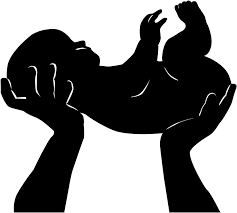Scene ONE: “I’m sorry, Ann, can I please ask a favor of you?”
The South Asian scholar, Bao, had become a brand new father and his wife and baby boy were set to be released from hospital. They needed help. “My academic advisor is just now assigning me extra duties and this is keeping me from getting my family back home to our apartment.”
“Sure”, Ann replied, “just give me the information and I will be there.”
Scene TWO: A year or two passes. Our phone rings.
“Hi Ann, are you very busy this afternoon. . . my wife and baby; they are at the hospital. .” (Déjà vu was in the air).
Such calls can readily spring out of the blue for campus workers in service to international students. My wife adjusted some things and, in each instance, headed to the medical facility. A mother herself – (now grandmother) – a smile visited her face as she navigated city traffic.
Her professional training – first as LPN, afterward as Registered Nurse – had simply reinforced Ann’s natural bent. Wired for responding to people (friend or stranger) in time of need, my wife was once the focus of a family chat around our family dining table, I posed a question to our children,
“So kids, which of these five qualities would you say most hits the mark as your mother’s ‘primary love language’. . Physical touch – Quality time – Gift giving – Acts of service – Words of affirmation.
“Their response was immediate and unanimous – each of them chiming, “Acts of Service!”
In an earlier season a couple decades prior when our home rested atop a remote hill at an Africa mission station, Ann launched into action one night to speedily fashion a makeshift bandage from a set of bedsheets. A young man brought to our screened back door had been laid open at the hand of an angry, inebriated fellow tribesman. The downward swing of the attacker’s machete left a grotesque open gash. Ann’s stop-gap measure (bad pun) met with success.
“To the servant of God, every place is the right place, and every time is the right time”*
©2025 Jerry Lout *St. Catherine of Siena


